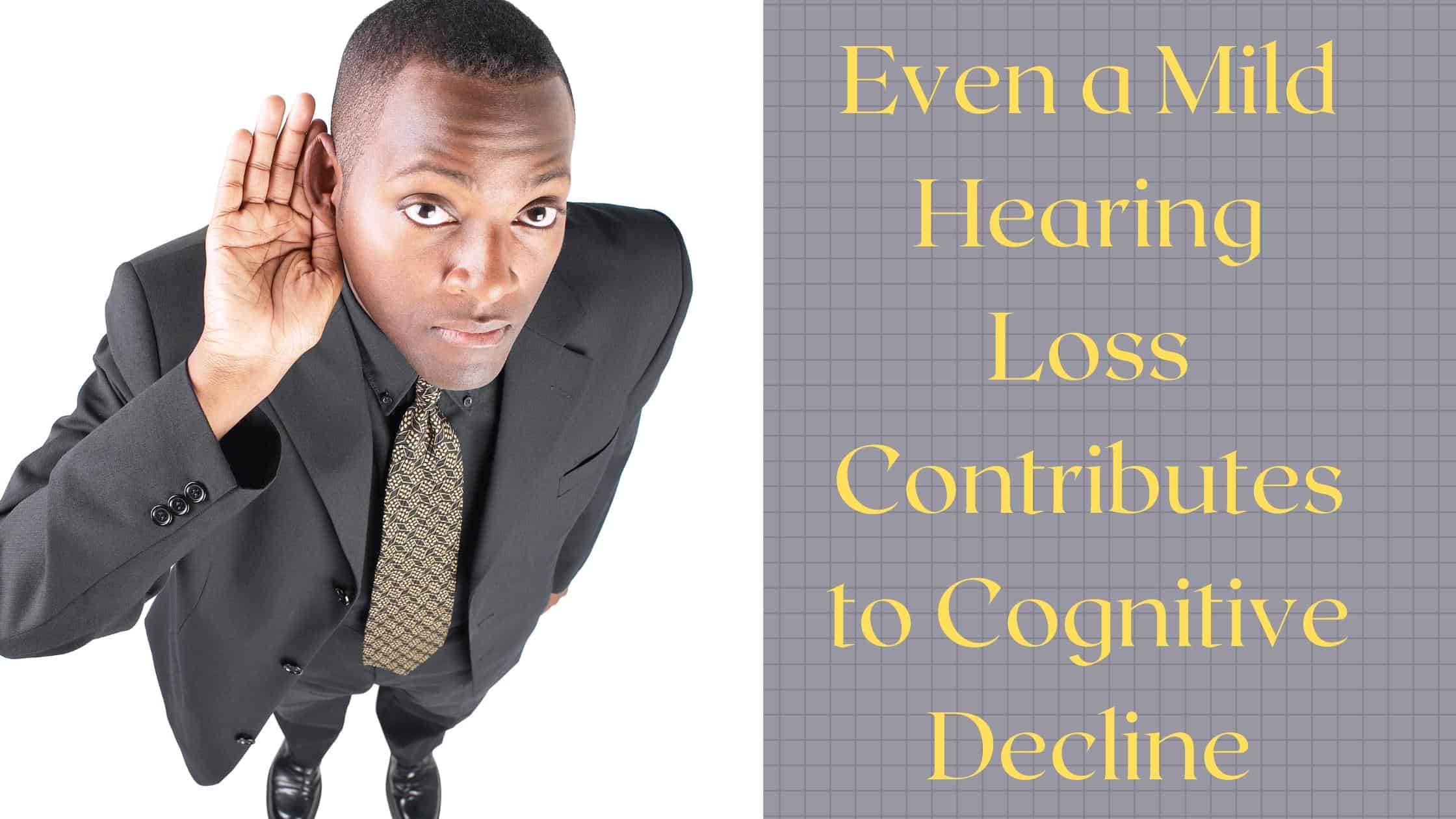Hearing loss, even experienced mildly, can contribute to cognitive decline. The development or acceleration of cognitive decline often leads to dementia which refers to reduced cognitive capacity. This impacts various brain functions – critically thinking, memory, problem solving, concentration etc.
There are various types of dementia including Lewy Body, Vascular, Parkinson’s, Huntington’s, and Alzheimer’s. Alzheimer’s is the most common form, accounting for 60-80% of all dementia. Extensive research has established a significant correlation between cognitive decline and hearing loss.
Numerous studies show that hearing loss accelerates cognitive decline. This also highlights that treating hearing loss can protect your health!
Link Between Hearing Loss & Cognitive Decline
There are several studies that explore the relationship between hearing loss and cognitive decline. Two significant studies that reveal how they are correlated include:
- 2019 Study, Brigham and Women’s Hospital and Harvard Medical School
- Study: researchers examined data collected by an 8-year health study. The study included 10,107 participants ages 62 and higher who self-reported their hearing and cognitive capacity.
- Findings: cognitive decline was:
- 30% higher among people with mild hearing loss
- 42% higher among people with moderate hearing loss
- 54% higher among people with severe hearing loss
- 2013 Study, Johns Hopkins
- Study: researchers collected and evaluated data from hearing and cognitive tests for 1984 adults, over a 6-year period.
- Findings: researchers found that hearing loss increased the risk of cognitive decline. This includes:
- people with mild hearing loss were 24% more likely to experience cognitive decline
- people with more severe hearing loss were 41% more likely to experience cognitive decline
This research highlights two important findings: not only does hearing loss increase the risk of cognitive decline but also that even mild hearing loss can contribute to reduced cognitive capacity.
How Does Hearing Loss Impact the Brain?
There are a few ways that researchers suggest hearing loss impacts the brain. Impaired hearing can reduce cognitive functions by:
- Cognitive overload: sound waves are translated to electrical signals in the inner ear. This critical processing helps the brain to make sense of the sound we hear. When the inner ear is not optimally functioning (hearing loss), then the brain is required to work much harder to process incoming sound which results in cognitive overload. This disproportionate energy spent processing sound can impact other areas of the brain.
- Social withdrawal: hearing loss strains communication which makes interacting with others more challenging. This can lead to avoiding conversations altogether, leading to social withdrawal which is a common effect of hearing loss. Spending less time with others, participating in activities, and isolating oneself leads to less energy and stimulation for the brain,
- Brain atrophy: hearing loss disrupts the ability of brain cells to communicate with each other. Because parts of the brain are being underutilized, this can lead to those cells becoming ineffective.
Though more research is needed to further explore how hearing loss affects the brain in ways that reduce specific functions; we know that treating hearing loss can significantly reduce the risk of cognitive decline.
Treating Hearing Loss
In addition to cognitive decline, untreated hearing loss can contribute to other health concerns and risks including: accidental injuries, unemployment or underemployment, and fatigue. Addressing hearing loss symptoms as early as possible can drastically improve overall health outcomes. Treating hearing loss is relatively simple and painless! The first step is to schedule an appointment for a hearing test.
Conducted by one of our experienced hearing health professionals,, hearing tests involve a noninvasive process that measures hearing capacity in both ears. This identifies any impairment and the degree of hearing loss that you may be experiencing.
Fortunately, there are various effective ways to treat hearing loss. The most common treatment is hearing aids. These small, electronic devices are designed to absorb, amplify, and process sound which increases a person’s hearing ability. Like most electronic devices today, hearing aids have evolved with advancing technology.
There is a wide range of options, features, and technologies that maximize hearing and user experience. Hearing aids are savvier than ever, easily integrating into daily life. Treating hearing loss not only improves hearing and reduces the risk of cognitive decline, but also allows people to navigate with greater ease!

